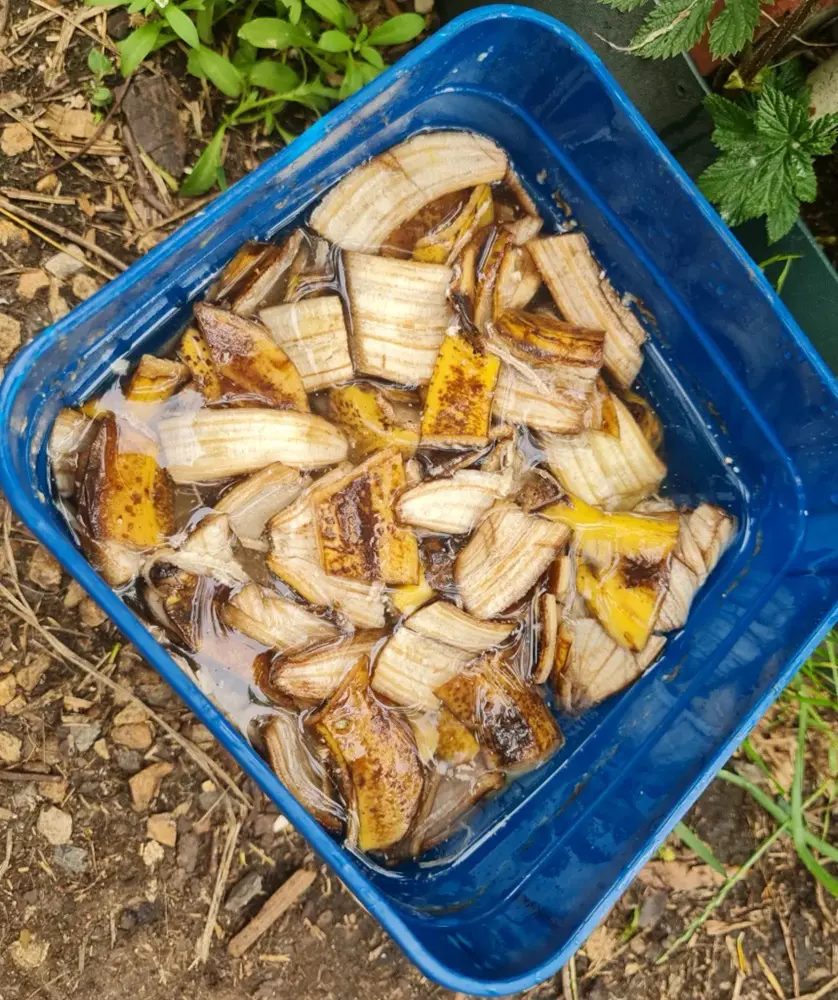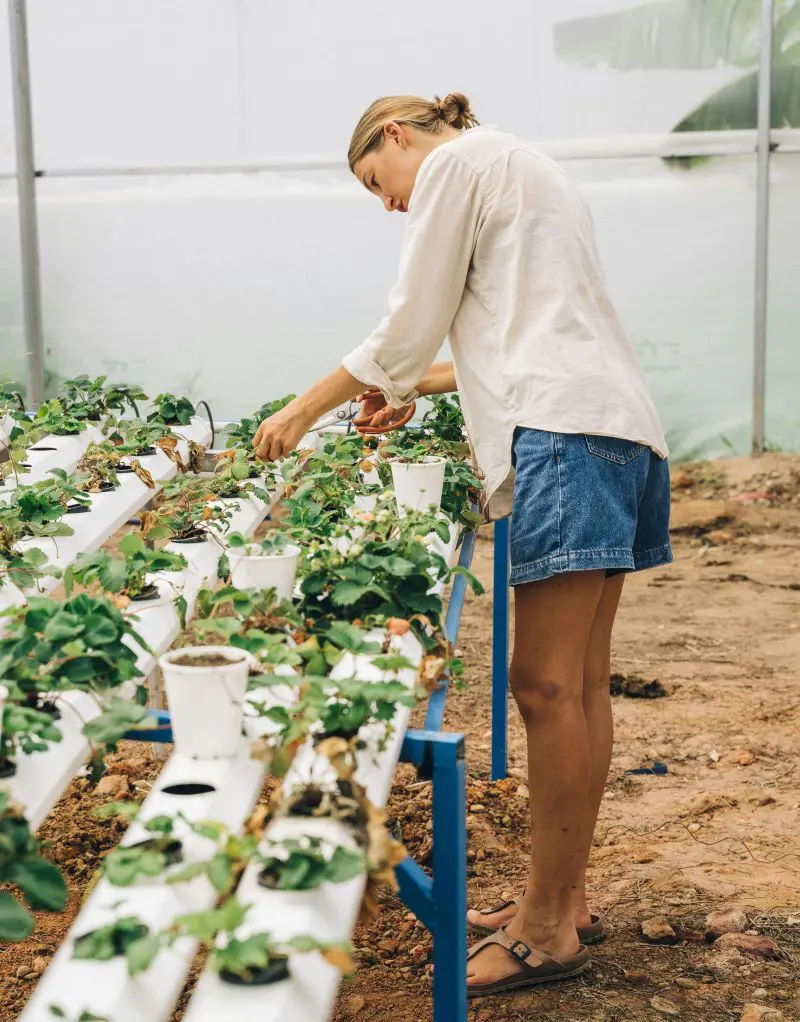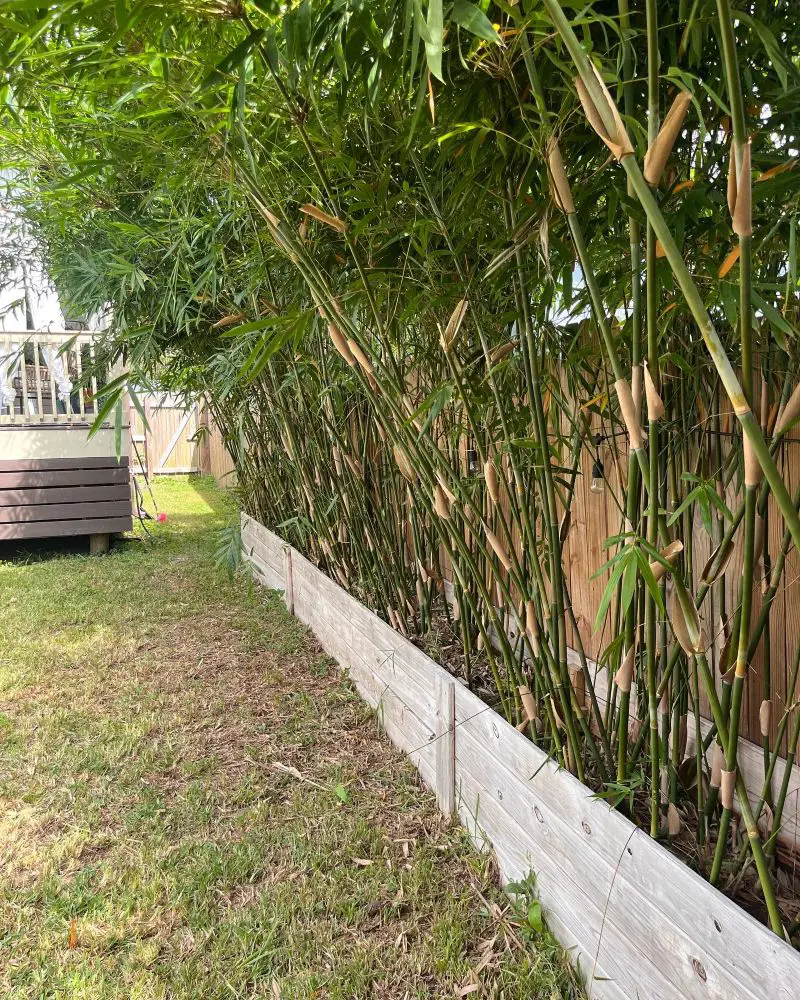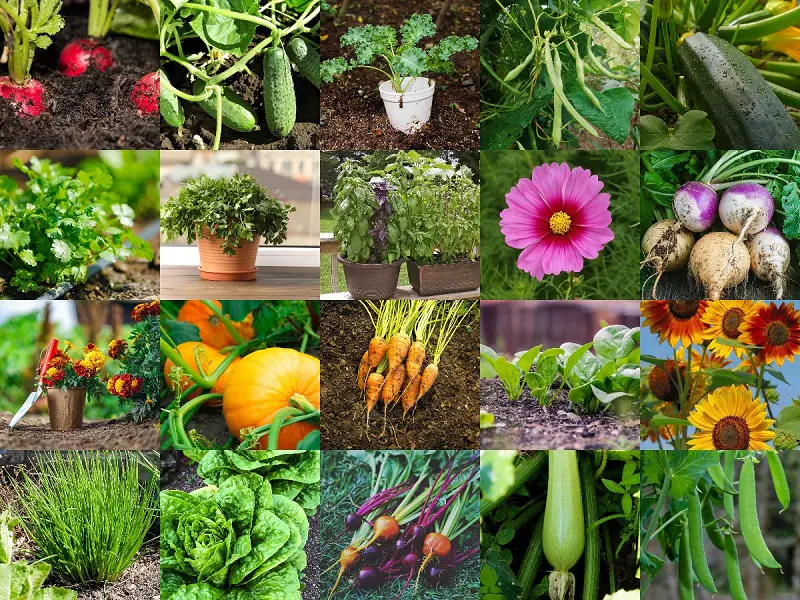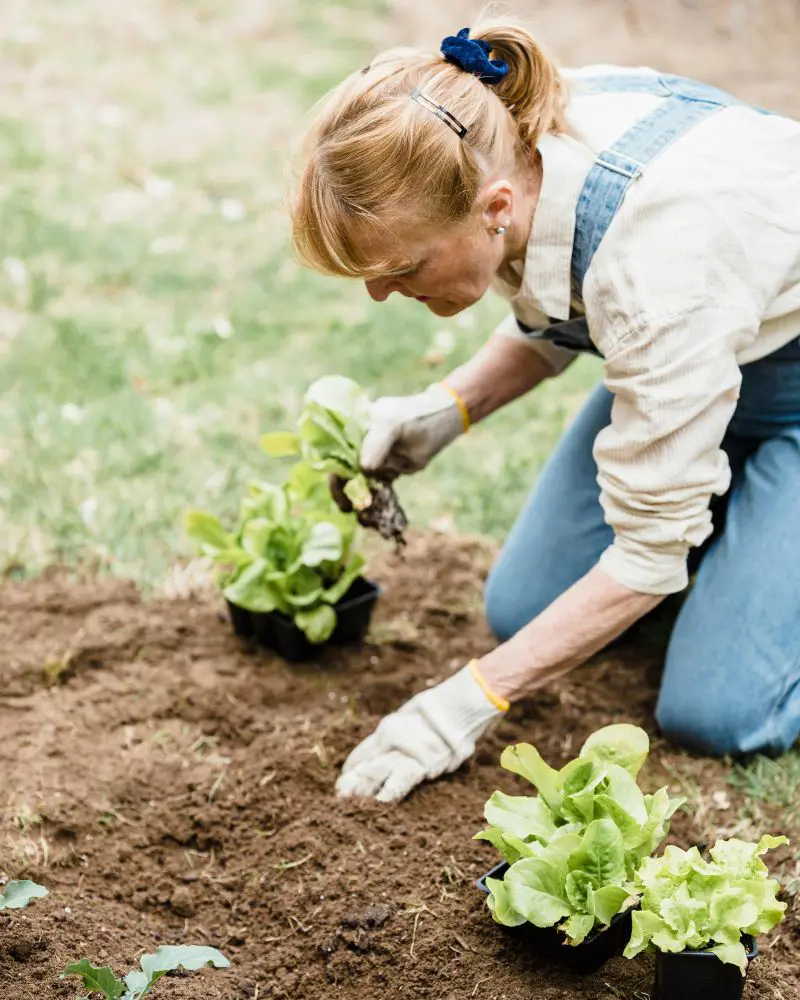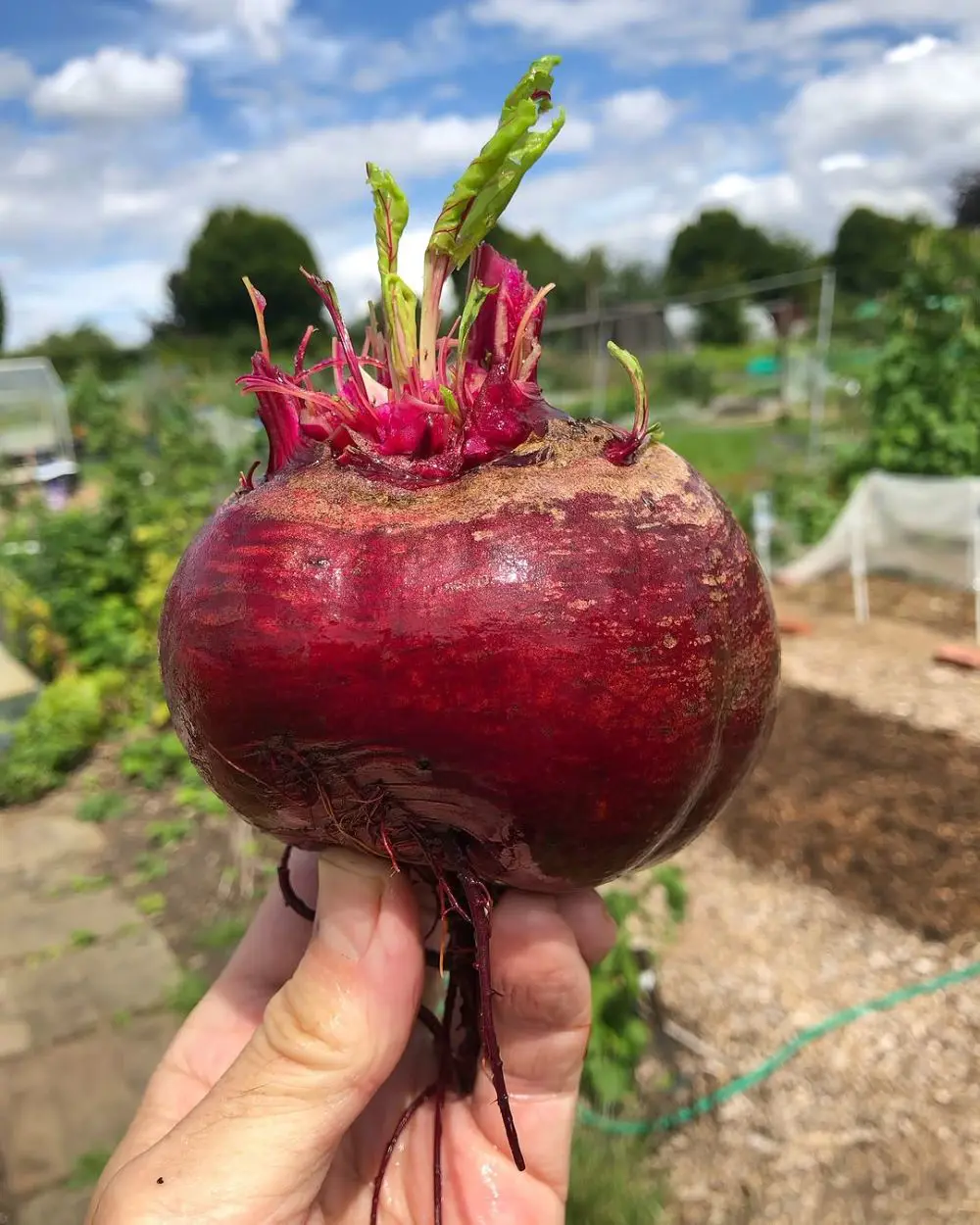Potassium is a vital nutrient for plant growth and development, playing a crucial role in various physiological processes. Unlike synthetic fertilizers, organic sources of potassium not only provide this essential nutrient but also improve soil health and promote sustainable agricultural practices.
This article delves into the importance of potassium for plants and highlights 20 organic sources that can be used to meet their potassium needs.
What is Potassium?
Potassium (K) is one of the three primary macronutrients essential for plant growth, alongside nitrogen (N) and phosphorus (P). It is represented by the chemical symbol 'K' from the Latin word 'kalium'.
Potassium is an alkali metal that is highly reactive and never found in its elemental form in nature. Instead, it exists in various compounds, which are used in agriculture to enhance soil fertility.
Why Do Plants Need Potassium?
Potassium is crucial for several reasons:
- Photosynthesis: Potassium regulates the opening and closing of stomata, the pores on leaves that control gas exchange and water loss. This regulation is essential for efficient photosynthesis, the process by which plants convert light energy into chemical energy.
- Protein Synthesis: Potassium activates enzymes that are involved in protein synthesis, which is vital for plant growth and development.
- Water Regulation: Potassium helps maintain the osmotic balance in plant cells, aiding in water uptake and retention. This is particularly important in preventing wilting and ensuring that plants can withstand drought conditions.
- Nutrient Transport: Potassium facilitates the movement of nutrients and water within the plant. This nutrient transport is essential for the overall health and productivity of the plant.
- Disease Resistance: Adequate potassium levels enhance a plant's ability to resist diseases and pests by strengthening cell walls and enhancing the production of defensive compounds.
Given its importance, a potassium deficiency can lead to stunted growth, weak stems, chlorosis (yellowing of leaves), and poor resistance to environmental stress.
Organic Sources of Potassium
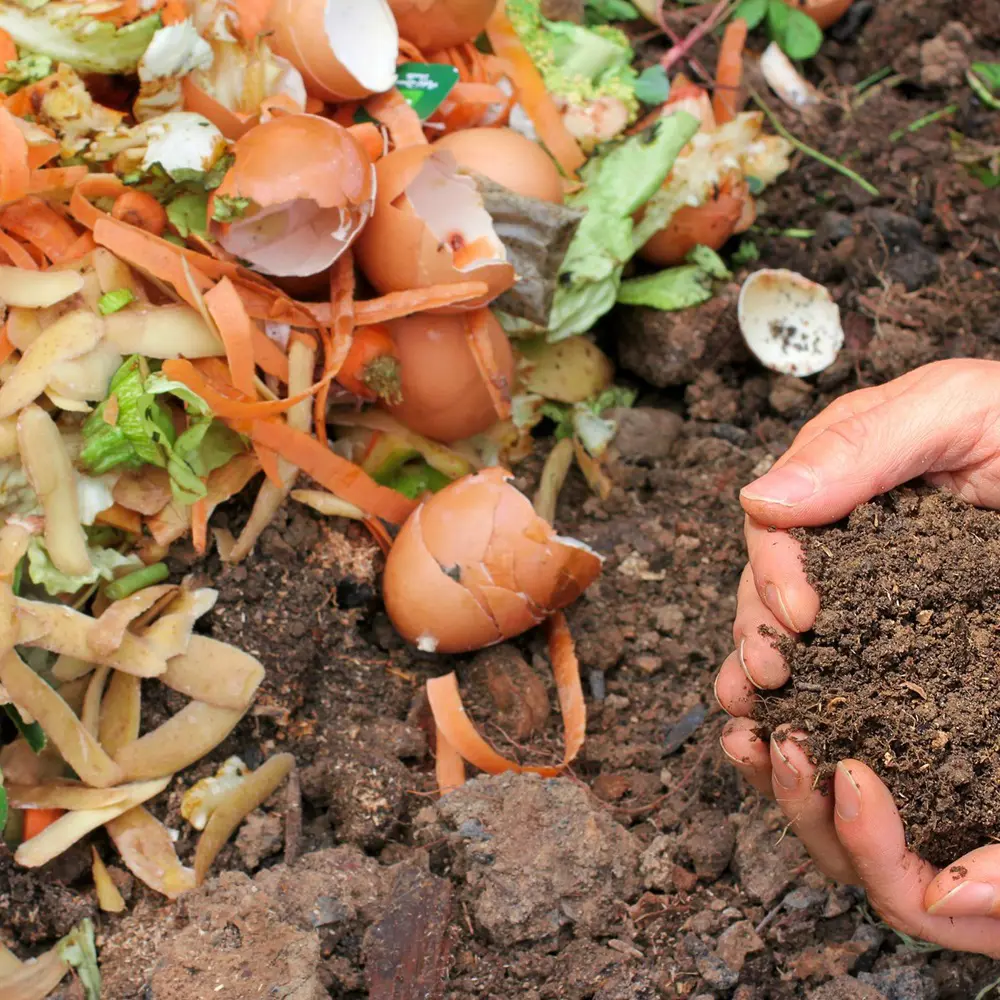
1. Compost
Compost is a versatile and sustainable source of potassium. It can be made from various organic materials, including kitchen scraps, garden waste, and animal manure.
The decomposition process transforms these materials into nutrient-rich humus that improve soil structure, water retention, and fertility. Composting not only provides a slow-release source of potassium but also supports beneficial microorganisms and earthworms that enhance soil health.
2. Wood Ash
Wood ash is a valuable byproduct of burning hardwoods. It contains potassium in the form of potassium carbonate, which is readily available to plants.
However, caution is needed when using wood ash, as excessive application can raise soil pH and potentially harm plants. It is best used in moderation and in conjunction with other organic amendments to balance soil nutrients.
3. Banana Peels
Banana peels are an excellent example of how kitchen waste can be repurposed to benefit the garden. They are rich in potassium, as well as other nutrients like calcium and magnesium.
Banana peels can be buried directly in the soil, added to compost, or soaked in water to create a potassium-rich tea. This method provides a quick and effective way to boost soil fertility.
4. Seaweed and Kelp Meal
Seaweed and kelp meal are harvested from marine environments and are rich in potassium, along with a wide range of trace minerals. They are particularly beneficial for improving soil structure, enhancing nutrient availability, and supporting plant health.
Seaweed can be applied fresh, dried, or as a liquid extract, while kelp meal provides a concentrated source of nutrients that can be mixed into the soil or used as a top dressing.
5. Greensand
Greensand is a naturally occurring mineral product derived from ancient marine deposits. It is rich in glauconite, a mineral that contains potassium and iron. Greensand releases nutrients slowly, making it a long-lasting soil amendment.
It is particularly useful for improving soil structure, increasing water retention, and providing a steady supply of potassium and other essential nutrients.
6. Alfalfa Meal
The alfalfa meal is made from dried and ground alfalfa plants. It is a rich source of potassium, nitrogen, and trace minerals. Alfalfa meal can be used as a soil amendment, compost activator, or mulch.
It promotes healthy plant growth, enhances soil fertility, and supports beneficial microorganisms. Alfalfa meal is also known for its ability to stimulate root development and increase plant resilience to stress.
7. Molasses
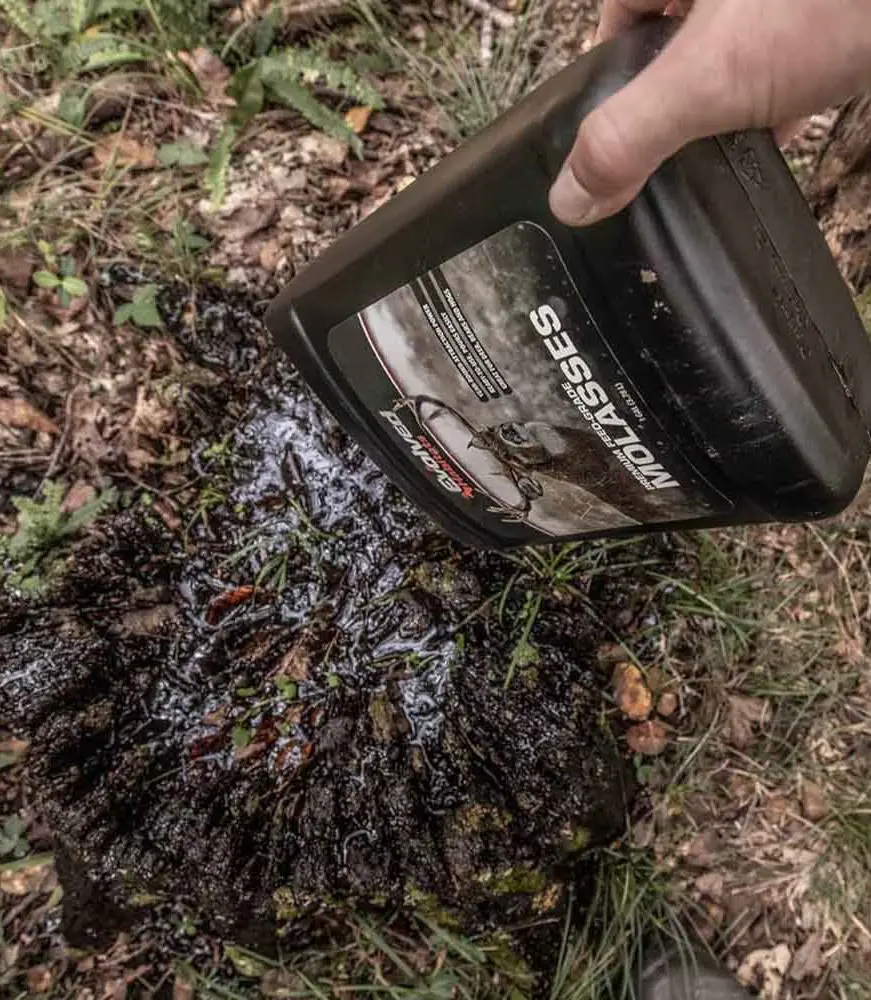
Molasses is a byproduct of sugar production and is rich in potassium and other essential nutrients. It can be diluted in water and used as a liquid fertilizer or soil drench.
Molasses support beneficial soil microorganisms, improve soil structure, and enhance nutrient availability. It is particularly useful for promoting healthy microbial activity and increasing soil organic matter.
8. Comfrey
Comfrey is a perennial herb that accumulates potassium and other nutrients in its leaves. It can be used as green manure, mulch, or compost tea.
Comfrey leaves can be harvested and placed around plants, tilled into the soil, or soaked in water to create a nutrient-rich liquid fertilizer. Comfrey is known for its deep roots, which draw nutrients from the subsoil, making them available to other plants.
9. Sul-Po-Mag (Langbeinite)
Sul-Po-Mag, also known as langbeinite, is an organic mineral compound that provides potassium, sulfur, and magnesium. It is particularly useful for crops that require these nutrients in balanced proportions.
Sul-Po-Mag can be mixed into the soil or used as a top dressing to provide a steady supply of essential nutrients. It supports healthy plant growth, improves soil structure, and enhances nutrient availability.
10. Potato Skins
Potato skins are a readily available source of potassium that can be recycled from kitchen waste. They can be composted or directly added to the soil to provide a slow-release source of potassium.
Using potato skins as a soil amendment is a sustainable way to recycle organic waste and enhance soil fertility. Potato skins also improve soil structure and support beneficial microorganisms.
11. Eggshells
Eggshells are primarily known for their calcium content, but they also contain small amounts of potassium. Crushed eggshells can be added to compost or soil to provide a slow-release source of nutrients.
Eggshells improve soil structure, enhance nutrient availability, and support healthy root development. They are particularly useful for reducing soil acidity and providing a steady supply of calcium and potassium.
12. Coffee Grounds
Used coffee grounds are rich in potassium, nitrogen, and other essential nutrients. They can be sprinkled around plants, added to compost, or used as mulch.
Coffee grounds improve soil texture, enhance nutrient availability, and support beneficial microorganisms. They also help improve soil drainage and water retention, making them a valuable addition to any garden.
13. Fish Emulsion
Fish emulsion is a liquid fertilizer made from fish remains. It is rich in potassium, nitrogen, and other essential nutrients, promoting vigorous plant growth. Fish emulsion can be diluted and used as a foliar spray or soil drench to provide a quick nutrient boost.
It supports healthy root development, enhances nutrient availability, and improves overall plant health. Fish emulsion is particularly beneficial for promoting lush, green foliage and increasing crop yields.
14. Humic Acid
Humic acid is derived from decomposed organic matter and enhances soil structure and nutrient availability. It contains potassium and other essential nutrients that support plant growth.
Humic acid products can be mixed into the soil or applied as a liquid amendment to improve soil health and fertility. They enhance nutrient uptake, increase soil organic matter, and support beneficial microorganisms.
15. Manure
Animal manures, particularly from chickens and cows, are excellent sources of potassium and other essential nutrients. They should be well-composted to avoid burning plants and to ensure that pathogens are eliminated.
Composting manure stabilizes nutrients and enhances their availability to plants. Manure improves soil structure, increases organic matter content, and supports healthy microbial activity. It is a valuable addition to any garden or farm.
16. Coconut Water
Fresh coconut water is rich in potassium and can be diluted and used as a foliar spray or soil drench. Using coconut water in your garden provides a natural source of potassium and supports healthy plant growth.
Coconut water also contains other essential nutrients that promote root development and overall plant health.
17. Fruit Juices
Certain fruit juices, such as those from oranges and apples, contain potassium and can be diluted and used as a liquid fertilizer. Fruit juices provide a quick nutrient boost and support microbial activity in the soil.
They are particularly useful for enhancing soil fertility and promoting healthy plant growth. Diluted fruit juices can be applied as a foliar spray or soil drench to provide essential nutrients.
18. Green Manure
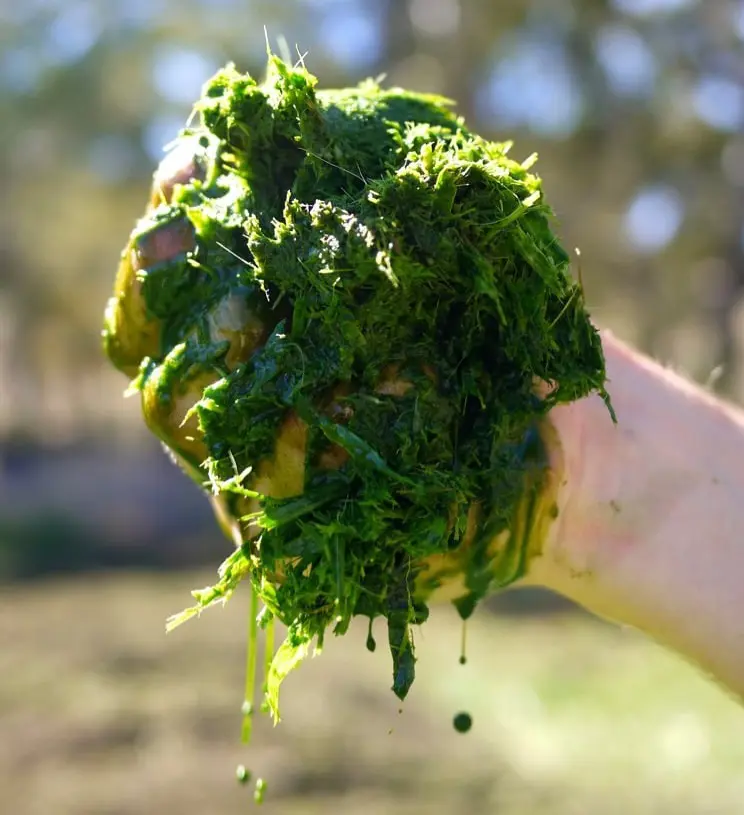
Green manure crops, such as clover, buckwheat, and legumes, can be grown and then tilled into the soil to provide potassium and other nutrients as they decompose. Green manure crops improve soil structure, enhance nutrient cycling, and increase organic matter content.
They also support beneficial microorganisms and improve soil fertility. Planting green manure crops as part of a crop rotation or cover cropping system is a sustainable way to enhance soil health and fertility.
19. Bone Meal
Bone meal is primarily known for its phosphorus content, but it also contains potassium and other essential nutrients. It can be used as a soil amendment for long-term nutrient release.
Bone meal improves root development, enhances nutrient availability, and supports healthy plant growth. It is particularly useful for promoting strong root systems and increasing crop yields.
20. Neem Meal
Neem meal is a byproduct of the neem oil extraction process and is a rich source of potassium and other essential nutrients. It can be used as a soil amendment or compost activator.
Neem meal also has natural pest-repellent properties, making it a dual-purpose addition to your garden. It supports healthy plant growth, improves soil structure, and enhances nutrient availability while protecting plants from harmful insects.
Implementing Organic Potassium Sources in Your Garden
To effectively use these organic potassium sources in your garden, consider the following tips:
- Soil Testing: Conduct a soil test to determine the potassium levels and overall fertility of your soil. This will help you identify deficiencies and tailor your fertilization practices to meet the specific needs of your plants.
- Composting: Incorporate a variety of organic materials into your compost pile to create a nutrient-rich amendment that provides a balanced supply of potassium and other essential nutrients. Regularly turn the compost to enhance decomposition and nutrient availability.
- Mulching: Use organic mulches, such as compost, straw, or comfrey leaves, to improve soil structure, retain moisture, and provide a slow-release source of potassium. Mulching also helps suppress weeds and regulate soil temperature.
- Liquid Fertilizers: Prepare potassium-rich liquid fertilizers using sources like banana peels, seaweed, or fruit juices. Dilute these fertilizers and apply them as foliar sprays or soil drenches to provide a quick nutrient boost.
- Soil Amendments: Incorporate organic soil amendments, such as greensand, kelp meal, or bone meal, into the soil to provide a long-lasting source of potassium. Mix these amendments thoroughly into the soil to ensure even nutrient distribution.
- Crop Rotation: Implement crop rotation and cover cropping practices to enhance soil fertility and reduce the risk of nutrient depletion. Rotate potassium-demanding crops with those that contribute organic matter and improve soil structure.
- Manure Management: Use well-composted animal manures to provide a steady supply of potassium and other essential nutrients. Avoid using fresh manure, as it can burn plants and introduce pathogens.
- Sustainable Practices: Embrace sustainable gardening practices, such as no-till farming, organic pest control, and water conservation, to enhance soil health and promote long-term fertility. Healthy soil supports nutrient cycling and improves plant resilience.
By implementing these tips and utilizing organic potassium sources, you can create a thriving and sustainable garden that supports healthy plant growth and productivity.
